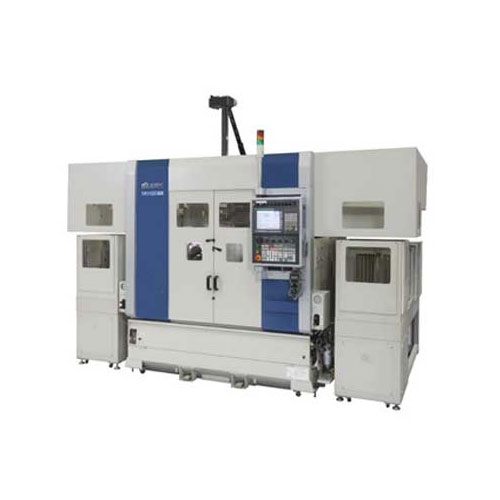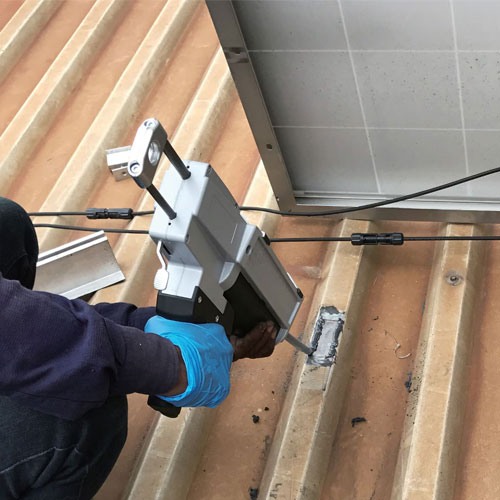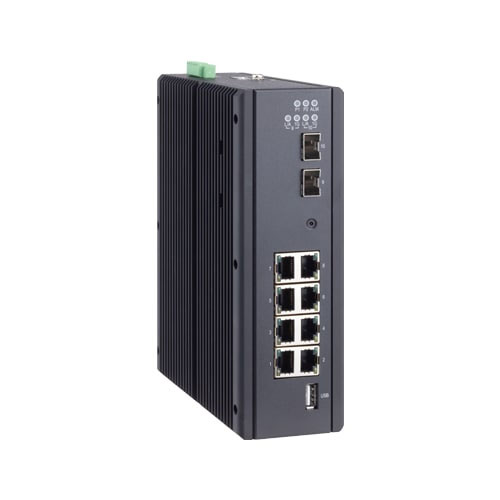Schedule a Call Back
EMO Hannover 2013 - The 4th Industrial Revolution Gathers Momentum
 Technical Articles
Technical Articles- Dec 03,12
Smart apps for smartphones control smart factories

No one can do without the internet. The world's premier trade fair for the metalworking sector, the EMO Hannover 2013 (16 to 21 September) will be themed around it too. Under the motto "Intelligence in Production", internet-based applications will be presented that go far beyond existing online ordering options, one-click orders, and networked tele-maintenance. The vision of the brave new internet world, in which entire production lines in smart factories are controlled over a smartphone, is no longer all that unrealistic.
Light switched on briefly and then off again, heating turned down low, blinds unsuspiciously half-open - Fred Appler, owner of a mid-tier component supplier firm, puts down his mobile phone with satisfaction: everything's okay at home. He's just about to lean back in his deckchair on the Baltic coast, when his new machining centre calls. "Hi boss, the current order's been completed, what shall I do now?" Fred thinks about it briefly, enters a few commands, and the machine displays a confirmation: "Ok boss, consider it done", and Fred knows now that everything's running like clockwork in the production hall back home as well.

Apps are cutting-edge IT - with modern-day mobile-phone house-elves, you can nowadays control machines, lines and components from your smartphone. More than 21 million Germans (a good one in four of the total population) are, according to the latest figures from the German Association for Information Technology, Telecommunications and New Media (Bitkom), Berlin, meanwhile using smartphone programs, known as apps, on their mobile phones. On average, each smartphone owner has installed 23 apps, one in seven even has more than 40. There are now apps available for every situational possibility - all the way through to a pensioner's app that in an emergency shows you the way to the nearest on-duty doctors and pharmacists.
In the estimation of Dr rer. nat Volkmar Denner, Board Chairperson responsible for research and advance development, technology coordination, product planning and engineering at Robert Bosch GmbH, "we all have to realise we're facing a paradigm shift, that our business life is going to change fundamentally due to the internet of things and services". Bosch, he says, is ready to meet and master this challenge: "We aim to connect the virtual and physical worlds". It is not easy, however, to plan which applications (such as apps for the iPhone) will prove successful on the market, which means it's vital to adopt an explorative (i.e. research-driven) approach and to retain the requisite adaptability.
All Elements Intelligently Networked
When it comes to internet utilisation and mobile networking, the IPA, IFF and ISW institutes in Stuttgart are research-driven and without a doubt adaptable. For Prof. Dr.-Ing. Thomas Bauernhansl, Director of the Fraunhofer Institute for Manufacturing Engineering and Automation (IPA), the Institute for Industrial Production and Factory Operation (IFF), and the newly founded Institute for Energy-Efficiency in Production Processes (EEP) at Stuttgart University, the vital consideration in production operations is "that you provide all the elements involved with intelligence and communication options, meaning intelligent networking of decentralised information carriers and information generators".

The smart factory, he continues, is basically the primary focus of the Fourth Industrial Revolution: "there, all the technologies are used that come from the IT and telecommunication worlds, but also from the mechanical engineering sector." The freedom of the internet, in which everyone can publish everything and use it free of charge, will have to be transferred to the systems used in production operations. Flexible order processing, he says, will ultimately be handled by the orders themselves: "If a malfunction occurs at a machine somewhere, and the order cannot be processed there, then the intelligent order (meaning the intelligent product) that's being manufactured will know whom it can still speak to and will seek out an alternative route in the production operation, without a human having to get involved. And only if the order fails to be punctual, it will trigger an alert, and the operator will have to intervene. This sounds a bit utopian, but it's do-able! Trade fairs like the EMO Hannover 2013 are a superb shop window for showcasing these options, utopian though they still may seem at present", to quote Baumhansl.
"Cautious optimism", by contrast, is voiced by his colleague Prof. Dr.-Ing. Prof. h.c. Dr. h.c. mult. Alexander Verl, Director of the Fraunhofer Institute for Manufacturing Engineering and Automation (IPA) and the Institute for Control Engineering of Machine Tools and Manufacturing Units (ISW) at Stuttgart University: "The 4th Industrial Revolution has been proclaimed, but it has not yet taken place: the much-heralded cyber-physical systems (CPS) are in most cases too expensive, insufficiently reliable, and often over-dimensioned."
Another impediment to an internet of things in the context of the Industry 4.0 hype is the lack of standardisation. Harmonised interfaces between CPSs are either non-existent or cannot communicate with each other to optimum effect. Then there are the rising costs of the hardware required: sensor-actuator systems of high complexity are still too expensive to render CPSs cost-efficient. Only after the introduction of communication standards and a clear specification of the mechanical and electronic components in conjunction with a fit-for-purpose software package "will we be able to speak of reliable and fit-for-market CPSs".
Apps Offer Huge Potentials

Possible app concepts from a user's point of view will be explained by Dr.-Ing. Jan Kotschenreuther, Vice President Software & Controls at MAG Europe GmbH, G?ppingen: "Apps can be used for sales and marketing purposes just as they can for production planning and control. In conjunction with an intelligent, secure infrastructure, they offer huge potentials for simplifying information interchange, and enable users to respond to altered requirements faster than ever." There is already an up-and-running website for smartphones, able to provide an overview of the ongoing status of the machinery concerned. Kotschenreuther sees the only reason why the production process of (the day after) tomorrow couldn't be controlled from your mobile phone as "the limited space on the screen. With a laptop or a handheld device it would certainly be possible to control a manufacturing process".
In response to the question of whether in future humans will hardly be able to influence ongoing processes, like Goethe's wizard's apprentice, the expert has a question of his own: "Why did CIM fail in the 1980s?
The basic idea was indubitably correct, but it failed due to factors like insufficient depth in terms of electronic data processing, inadequacies of the IT capabilities back then, and exorbitant costs for the hardware. Moreover, there was not enough focus on the human factor. Many of these obstacles have been eliminated with our present-day options."
At the EMO Hannover 2013, says Kotschenreuther, "we should expect approaches to what concepts of this kind may look like. Besides the ideas for the apps themselves, we're still seeking field-proven concepts for the App Store. We're talking here about issues like data security, data interchange, access authorisations or business models".
Fred Appler in his deckchair, however, is sublimely indifferent to all this. His latest app has just reminded him that he has to enter the most important innovation highlight of the year in his diary: the EMO Hannover 2013.
| EMO Hannover 2013 - the World's Premier Trade Fair for Metalworking Sector |
| From 16 to 21 September 2013, international manufacturers of production technology will be spotlighting "Intelligence in Production" at the EMO Hannover 2013. The world's premier trade fair for the metalworking industry will be showcasing the entire bandwidth of today's most sophisticated metalworking technology, which is the heart of every industrial production process. The fair will be presenting the latest machines, plus efficient technical solutions, product-supportive services, sustainability in the production process, and much, much more. The principal focus of the EMO Hannover is on metal-cutting and forming machine tools, production systems, high-precision tools, automated material flows, computer technology, industrial electronics and accessories. The trade visitors to the EMO come from all major sectors of industry, such as machinery and plant manufacturers, the automotive industry and its component suppliers, the aerospace sector, precision mechanics and optics, shipbuilding, medical technology, tool and die manufacture, steel and lightweight construction. |
Related Products

Compact Fmc - Motorum 3048tg With Fs2512
Meiban Engineering Technologies Pvt Ltd offers a wide range of Compact FMC - Motorum 3048TG with FS2512.

Structural Adhesive for Solar Panel Roof Mounting
Parson Adhesives India Private Ltd offers a wide range of structural adhesive for solar panel roof mounting – Partite 7535.

Industrial Tsn Switch
Contec launches a future-ready Industrial TSN Switch- SH-9210TSN.















